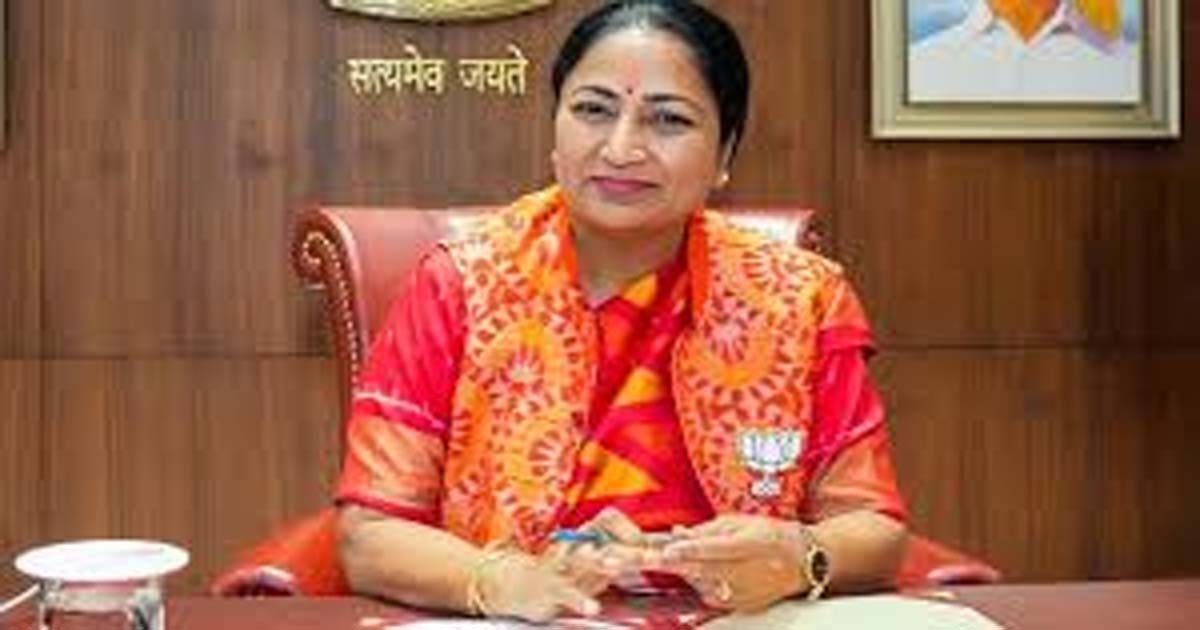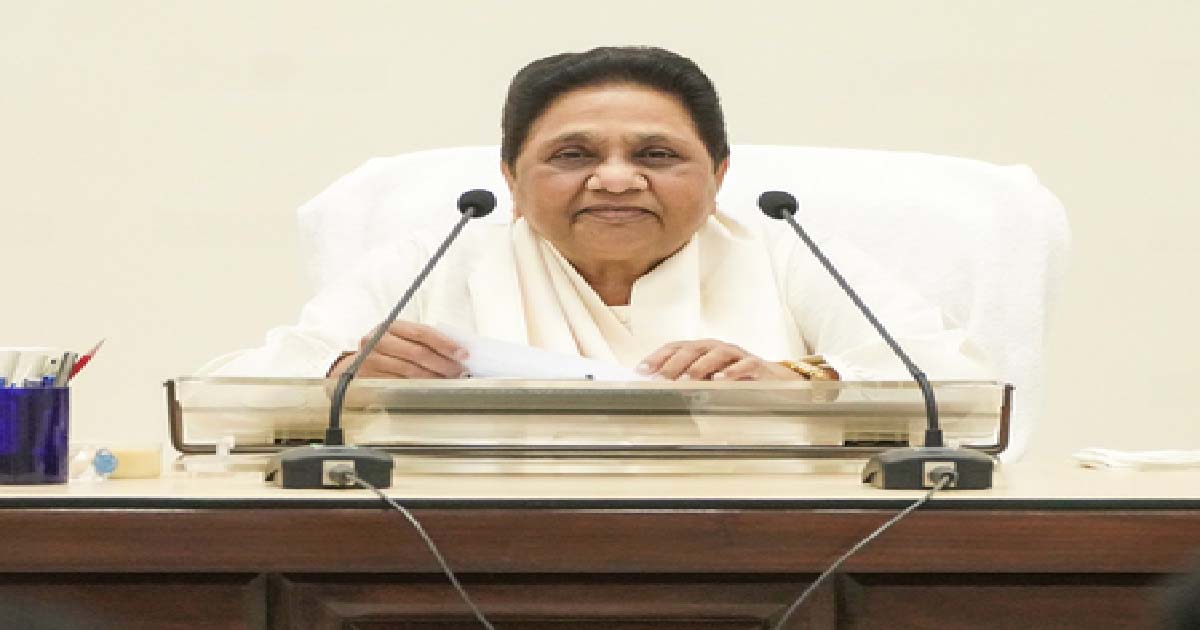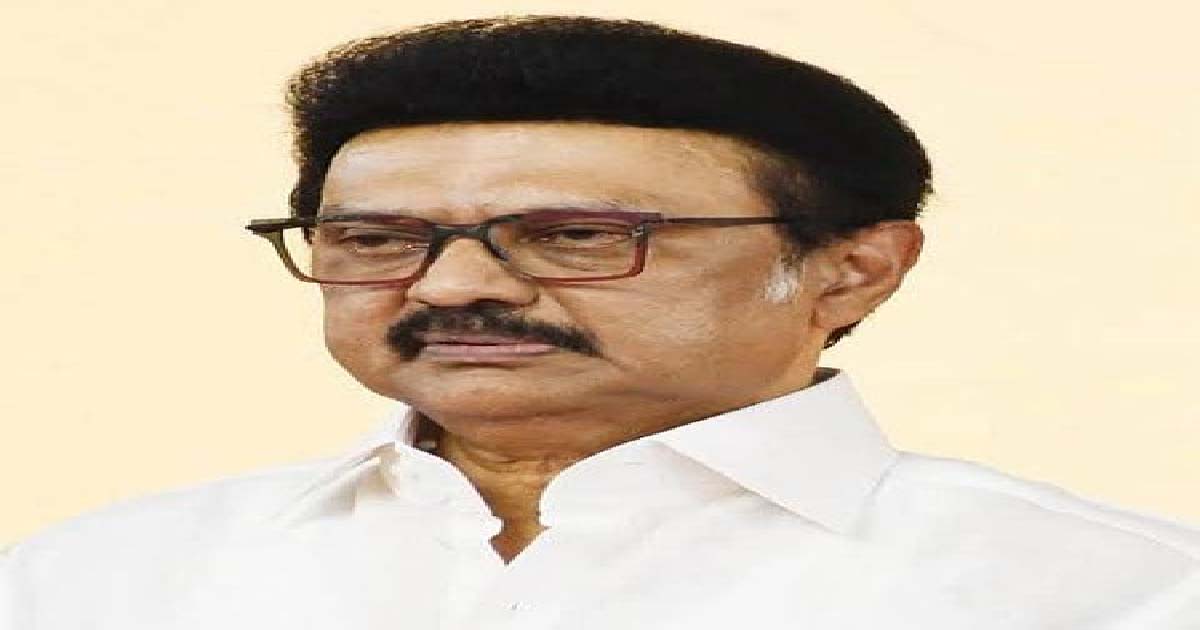National News
Shameful: Delhi CM Rekha Gupta on Waqf-related violence in Bengal, Mamata Banerjee’s ‘failure’

New Delhi, April 18: Delhi Chief Minister Rekha Gupta on Thursday described the communal violence in West Bengal over the Waqf Act as “shameful” and a blot on the performance of her counterpart, Mamata Banerjee.
Talking to Media in an exclusive interview, CM Gupta said, “The way West Bengal Chief Minister is herself involved in causing a wedge among people is deplorable.”
Pointing to the volatile situation in West Bengal, she said, “It reflects badly on the Chief Minister if such an atmosphere is created in the state. On top of it, the CM herself is indulging in spreading the communal fire.”
The Delhi Chief Minister also extended sympathy towards the Hindu families in the minority-dominated-Murshidabad district who have borne the brunt of communal violence.
“Such atrocities are taking place against Hindus that they are forced to flee their homes. There can be nothing more shameful for a state, especially for a woman Chief Minister,” she said.
Her remarks came on a day when the Calcutta High Court directed the formation of a committee to review the situation in Murshidabad. So far, there have been reports of three violence-related deaths in the district.
CM Gupta also attacked her predecessor and former Delhi Chief Minister Arvind Kejriwal for doublespeak on several issues.
“He is a master in the politics of opportunism. He issues statements only on issues that suit him,” she said, questioning his silence over ED raids against Congress leaders Sonia Gandhi and Rahul Gandhi.
Kejriwal swears in the name of his children and again indulges in wrongdoings and joins hands with tainted people, she said.
Expressing surprise over claims of Kejriwal that officials were not letting his government work freely in Delhi, CM Gupta said, “Officials want to work. It depends on the head of the government if he or she wants to extract work from them.”
Dismissing Kejriwal’s allegations of roadblocks in performing as Delhi CM, she said the same set of officials is working with the BJP government. “The Lieutenant Governor also wanted to help, the Central government also wanted to support, but he was in the habit of abusing and accusing others of non-cooperation,” she said.
National News
Mayawati pays tribute to Ambedkar, asks when will ‘good days’ come for the Bahujan community

Lucknow, Dec 6: On the 69th Mahaparinirvan Day of Bharat Ratna Dr Bhimrao Ambedkar, Bahujan Samaj Party (BSP) national president and former Uttar Pradesh Chief Minister Mayawati expressed concern that crores from the Bahujan community have yet to see the “good days” of self-respect and dignity, despite following the path shown by the architect of the Indian Constitution.
Taking to social media platform X, Mayawati wrote, “Today, on the death anniversary of Bharat Ratna, the most revered Babasaheb Dr Bhimrao Ambedkar, the messiah of crores of people from the Bahujan Samaj in the country, I paid tribute to him.”
She said that party leaders and followers gathered in large numbers at various Ambedkar memorials across the country to pay tributes to the architect of the Constitution.
“Members of the party from 12 organisational divisions of Uttar Pradesh, along with followers of Babasaheb, gathered in large numbers at the grand ‘Dr Bhimrao Ambedkar Social Change Site’ built by the BSP government on the banks of the Gomti River in Lucknow. People from Western Uttar Pradesh, Delhi, and Uttarakhand also gathered at the ‘National Dalit Inspiration Site and Green Garden’ established by the BSP government in Noida and paid their respects,” she added.
Mayawati further said that BSP National Coordinator Akash Anand also paid tribute at the Noida memorial. She noted that similar tribute programmes were held across various states at the zonal level.
“For this, I express heartfelt thanks and gratitude to everyone, especially to the people of Uttar Pradesh,” she said.
Reflecting on Ambedkar’s legacy, Mayawati questioned why millions from the Bahujan community were still waiting for dignity and social justice.
“On special occasions such as Independence Day, Republic Day, and on the birth and death anniversaries of Babasaheb, one question continues to arise — when will the ‘good days of self-respect and equality’ come for crores of Bahujans in the country, in line with the humanistic and welfare goals of the Constitution?” she wrote.
She asserted that the BSP, as the country’s only Ambedkarite political party, remains committed to Ambedkar’s mission.
“The BSP is conscious, alert, and deeply concerned about why true ‘good days’ have not yet come for the exploited, oppressed, and marginalised Dalits, tribals, and OBCs — the very communities for whom Babasaheb dedicated his life and enacted strong constitutional safeguards. Salute to him,” Mayawati added.
National News
Mega Block On Mumbai-Pune Line Tomorrow: Is Your Train Cancelled? Check Here

Pune: For maintenance purposes, a mega block is in place on Sunday on the Mumbai-Pune Railway Line. Due to this, many key express trains have been cancelled, while some locals from Pune to Lonavala will also not provide the service on Sunday.
Express trains, which have been completely cancelled, include the Sinhagad Express, the Deccan Queen Express, the Pragati Express, the Mumbai Pune Intercity Express and the Indrayani Express.
Meanwhile, many Pune-Lonavala local trains have been cancelled as well. Some of them have been completely cancelled, and some of them will begin or end their journey at Talegaon Dabhade Railway Station. They won’t connect Pune to Lonavala. Railway authorities have asked commuters to be aware of this and act accordingly.
Mega-blocks on the Mumbai–Pune Railway Line and the broader Mumbai suburban network are scheduled mainly on Sundays to allow Central Railway to carry out large-scale maintenance that cannot be performed during heavy weekday traffic. These blocks provide uninterrupted time for essential work on tracks, overhead equipment, points, signals, and bridges, ensuring long-term safety and reliability of both suburban and long-distance operations.
Sundays (or public holidays) are chosen because commuter footfall is comparatively lower. This reduces disruption to daily travel patterns. Mega-blocks occur almost every Sunday across the Main, Harbour and Trans-Harbour lines and occasionally affect stretches on the Mumbai–Pune intercity route as well. Their duration typically ranges from four to seven hours; earlier blocks commonly lasted four to five hours, though recent examples include work between Vidyavihar and Thane from 8:00 a.m. to 1:30 p.m. Mega-blocks may also lead to temporary cancellations or diversions of Pune–Mumbai trains when work is scheduled on those sections.
National News
Stalin govt sanctions Rs 10 crore for delisting Parambikulam–Aliyar project canals

Chennai, Dec 6: The Tamil Nadu government has approved a Rs 10-crore special package for desilting the Parambikulam–Aliyar Project (PAP) canals, with works scheduled to begin immediately after the completion of the ongoing water release to the fourth zone.
The order, issued by Water Resources Department (WRD) Secretary J. Jayakanthan, provides administrative sanction for 154 desilting works across three key divisions under the PAP.
A senior WRD official said the initiative includes clearing vegetation, removing loose debris, and desilting major and minor canals.
“We had originally planned 160 works, but 154 have received sanction. Our aim is to complete all desilting activities before Pongal, as water must be released for irrigation to the first zone during the festival season,” the official said.
Chief Minister M.K. Stalin had announced the allocation on August 11 during his visit to Tiruppur district, following requests from irrigation association leaders and farmers who highlighted the urgent need for desilting to improve water flow and irrigation efficiency.
The government subsequently earmarked Rs 10 crore exclusively for PAP canal works.
According to the government order, 44 works will be taken up in the Thirumurthy division at an estimated cost of ₹2.88 crore, 27 works in the Parambikulam division at Rs 2.15 crore, and 83 works in the Aliyar basin division at Rs 4.97 crore. The desilting programme is expected to benefit a total ayacut of 1,33,976.62 hectares across Coimbatore and Tiruppur districts.
At present, water is being released from the Thirumurthy Dam for the fifth wetting of the fourth zone.
As per the original schedule, water should be supplied until December 9. However, a recent breach in the main canal near Vavipalayam disrupted supply.
“To compensate for the interruption, we have extended water release for another ten days, from December 9. Desilting will begin soon after this cycle ends,” the WRD official said.
Welcoming the move, P. Velusamy, President of the PAP Vellakoil Branch Canal Water Conservation Movement, said desilting should ideally be carried out twice a year.
“For the last four years, PAP has not received adequate funds for regular desilting. The current special allocation is a much-needed intervention,” he noted.
The Parambikulam–Aliyar Project, a vital inter-basin water transfer and irrigation scheme, consists of seven reservoirs, four hydropower stations, six tunnels, one weir, and a contour canal system that diverts west-flowing rivers to irrigate vast rain-shadow regions of western Tamil Nadu.
-

 Crime3 years ago
Crime3 years agoClass 10 student jumps to death in Jaipur
-

 Maharashtra1 year ago
Maharashtra1 year agoMumbai Local Train Update: Central Railway’s New Timetable Comes Into Effect; Check Full List Of Revised Timings & Stations
-

 Maharashtra1 year ago
Maharashtra1 year agoMumbai To Go Toll-Free Tonight! Maharashtra Govt Announces Complete Toll Waiver For Light Motor Vehicles At All 5 Entry Points Of City
-

 Maharashtra1 year ago
Maharashtra1 year agoFalse photo of Imtiaz Jaleel’s rally, exposing the fooling conspiracy
-

 National News1 year ago
National News1 year agoMinistry of Railways rolls out Special Drive 4.0 with focus on digitisation, cleanliness, inclusiveness and grievance redressal
-

 Maharashtra1 year ago
Maharashtra1 year agoMaharashtra Elections 2024: Mumbai Metro & BEST Services Extended Till Midnight On Voting Day
-

 National News1 year ago
National News1 year agoJ&K: 4 Jawans Killed, 28 Injured After Bus Carrying BSF Personnel For Poll Duty Falls Into Gorge In Budgam; Terrifying Visuals Surface
-

 Crime1 year ago
Crime1 year agoBaba Siddique Murder: Mumbai Police Unable To Get Lawrence Bishnoi Custody Due To Home Ministry Order, Says Report












